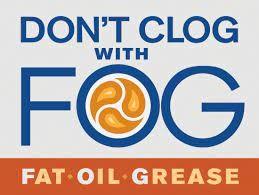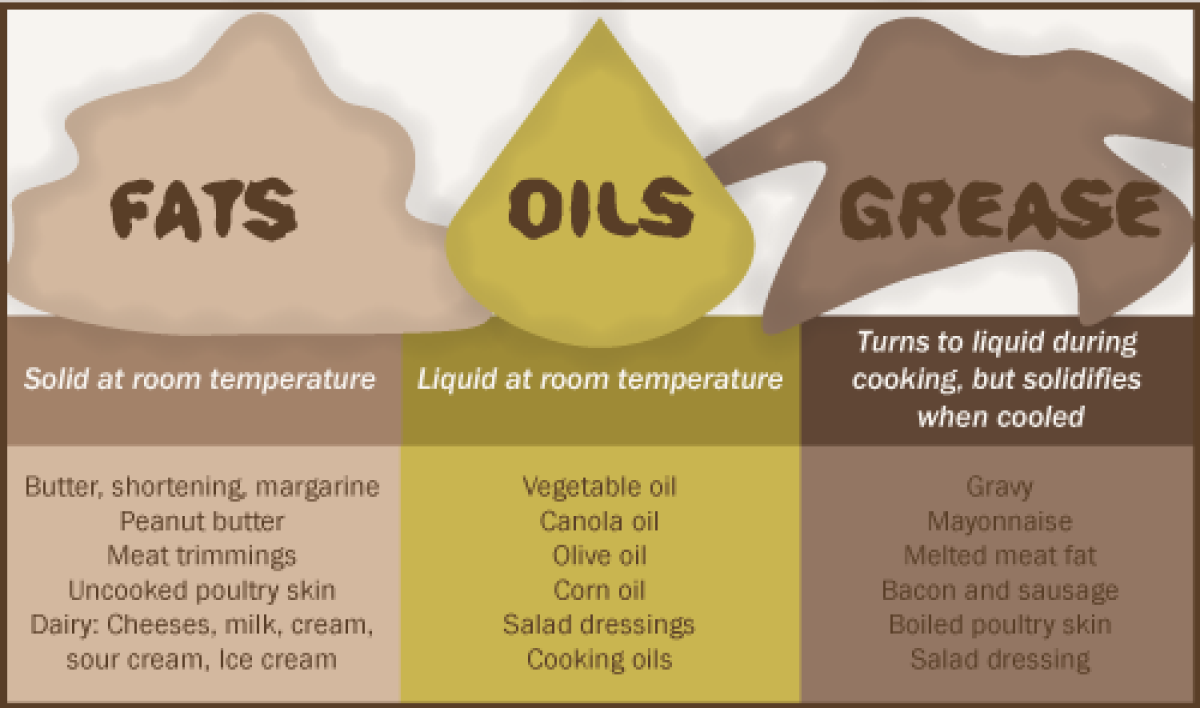
Reducing Fats, Oils, and Grease in Your Home or Apartment
Reducing the fats, oils, and grease (FOG) going down your kitchen sink helps prevent sewer problems.
Following these dos and don’ts will help you and your neighbors avoid expensive sewer backups, plumbing emergencies, and rate increases to cover sewer maintenance and repairs, while helping protect water quality in your community.
Do
- Recycle used cooking oil or properly dispose of it by pouring it into a sealable container and placing the sealed container in the trash. To recycle large amounts, such as what’s left over from a catfish fry or frying a turkey, contact a local recycler by looking in the yellow pages under “Greases” or “Rendering.” If you have a lot of oil to dispose of, use clay cat litter. Just mix the litter, a little at a time, into the oil. When all the oil has been absorbed, pour the cat litter into a trash bag, seal the bag, then dispose of it in your regular trash.
- Scrape food scraps into the trash, not the sink.
- Wipe pots, pans, and dishes with dry paper towels before rinsing or washing them, then throw away the paper towels.
- Place a catch basket or screen over the sink drain when rinsing dishware, or when peeling or trimming food, to catch small scraps that would otherwise be washed down the drain. Throw the scraps in the trash.
- Rinse dishes and pans with cold water before putting them in the dishwasher. Hot water melts the fats, oils, and grease (FOG) off the dishes and into the sewer pipes. Later on in the sewer, the hot water cools and the FOG may clog the pipes.
Don’t
- Don’t use a garbage disposal or food grinder. Grinding food up before rinsing it down the drain does not remove FOG; it just makes the pieces smaller. Even non-greasy food scraps can plug your home’s sewer lines. So, don't put food of any kind down the drain.
- Don’t pour cooking oil, pan drippings, bacon grease, salad dressings, or sauces down the sink or toilet, or into street gutters or storm drains.
- Don’t use cloth towels or rags to scrape plates or clean greasy or oily dishware. When you wash them, the grease will end up in the sewer.
- Don’t run water over dishes, pans, fryers, and griddles to wash oil and grease down the drain.
- Don't flush any type of wipe down the commode. Even flushable wipes only break down into smaller pieces. This gives FOG something to cling to and build up more quickly.

